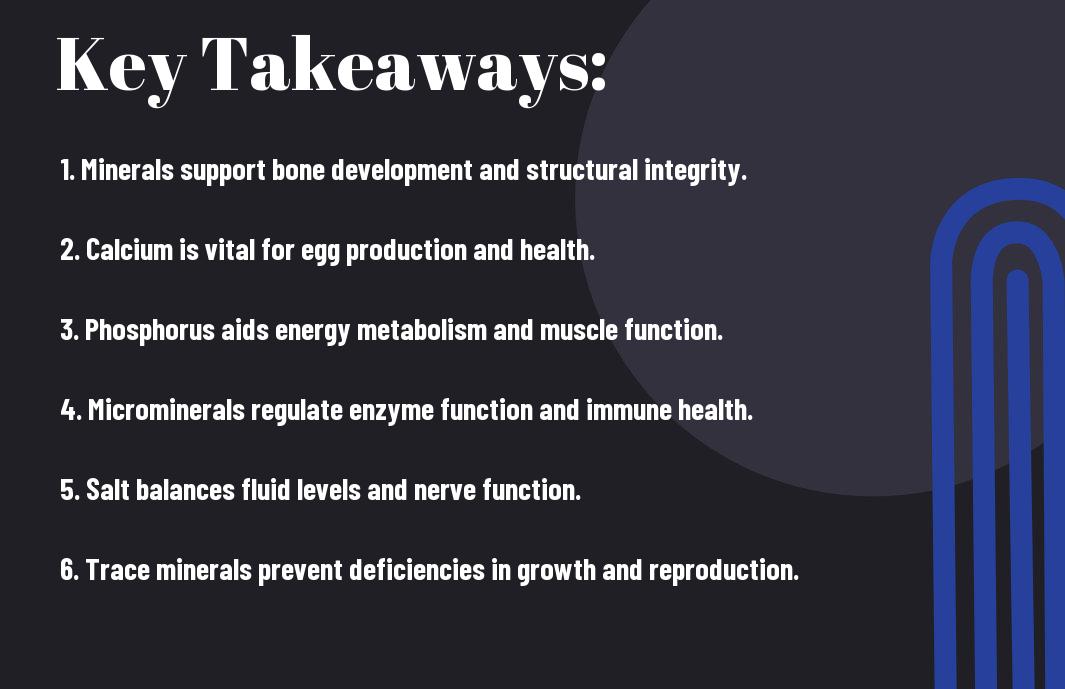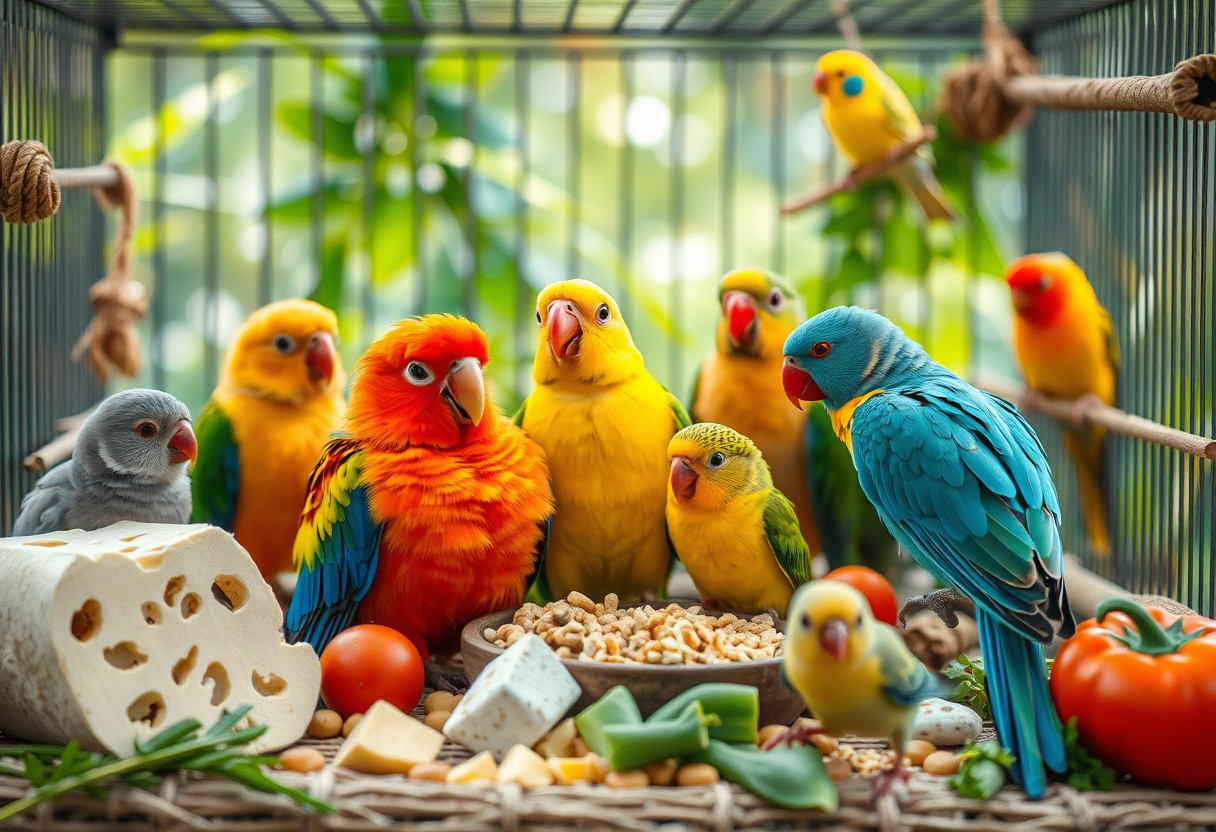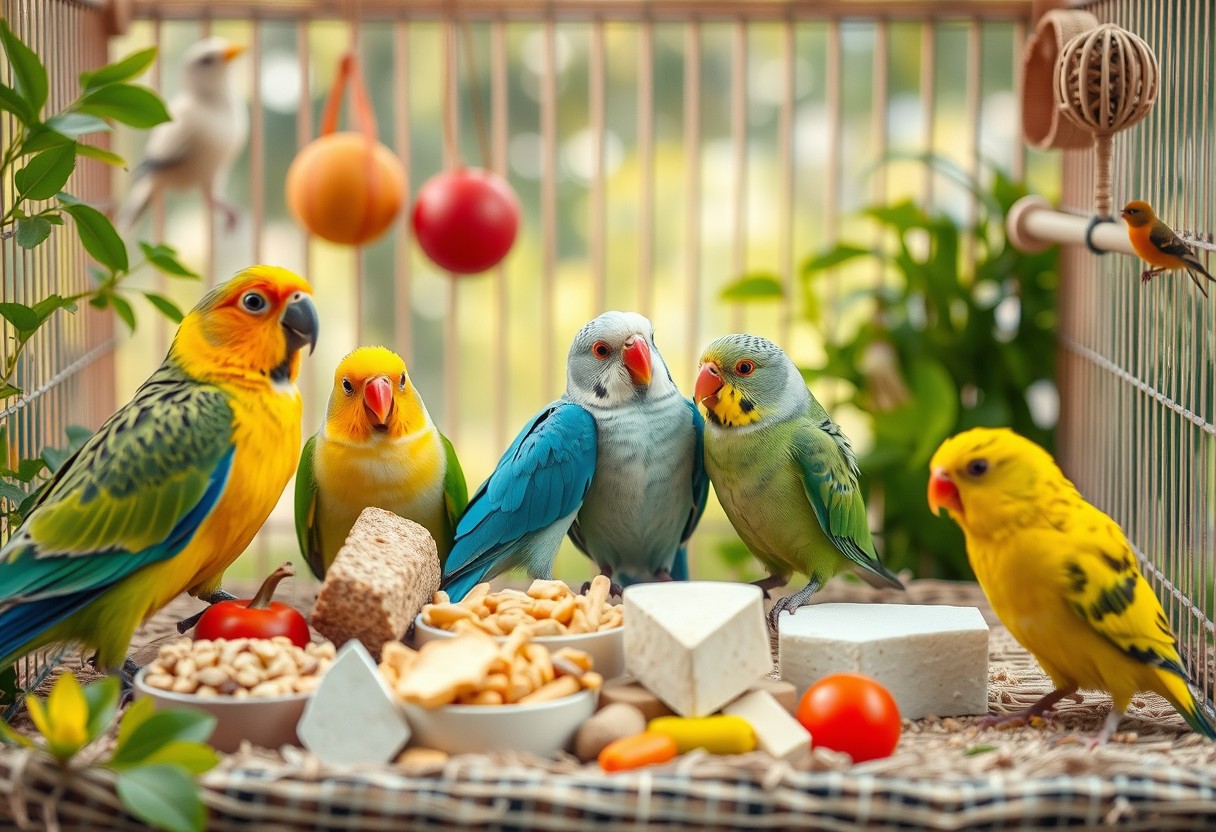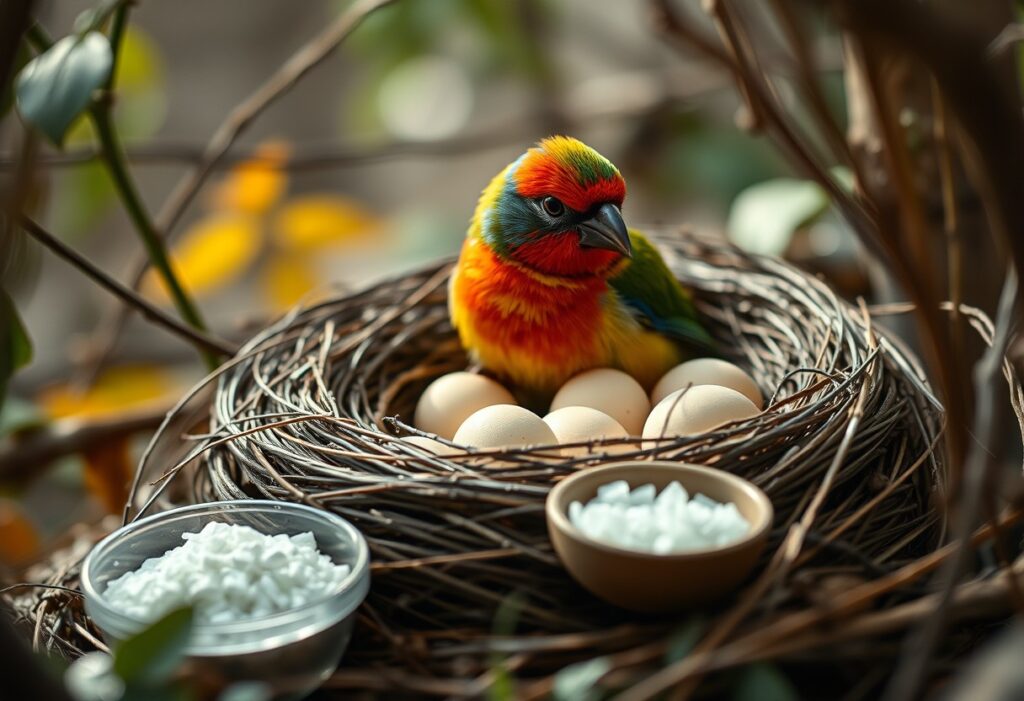Bird nutrition is a crucial aspect of their overall health and well-being, and minerals are foundational components in their dietary needs. You may not realize it, but deficiencies in important minerals can lead to severe health issues, including weakened bones and poor feather quality. By ensuring your birds receive a balanced intake of minerals such as calcium, phosphorus, and magnesium, you can significantly enhance their growth, reproduction, and immune function. Understanding these roles will empower you to make informed decisions about your avian companions’ diets.

The Importance of Minerals in Bird Nutrition
The significance of minerals in bird nutrition cannot be overstated. Just like humans, birds require a variety of important nutrients to maintain their health and well-being. Among these nutrients, minerals play a vital role in numerous physiological processes, serving as the building blocks for various bodily functions. Without adequate mineral intake, your feathered friends may experience deficiencies that can lead to serious health issues, affecting everything from bone strength to reproductive success.
Essential Minerals for Birds
Any bird owner should familiarize themselves with the important minerals that are crucial for their birds’ health. Key minerals include calcium, phosphorus, magnesium, potassium, and sodium. Calcium, for instance, is vital for strong bones and egg production in female birds. Phosphorus promotes energy transfer and is crucial for the formation of bones and teeth. A balanced intake of these minerals directly influences your bird’s overall vitality.
Role of Minerals in Metabolism
On the metabolic front, minerals facilitate various enzymatic processes that are critical for your bird’s energy production and utilization. Minerals like magnesium act as cofactors in enzyme reactions, while potassium and sodium help maintain fluid balance and nerve function. Sulfur is also important, as it contributes to amino acid synthesis and supports antioxidant functions. If your bird’s diet lacks these critical minerals, you might notice lethargy, poor feather quality, and reduced immune response.
Role of minerals in metabolism extends beyond just energy and enzymatic functions; they also play a significant part in the synthesis of hormones and neurotransmitters. For instance, adequate levels of iodine are crucial for thyroid function, which regulates metabolism and energy levels. Furthermore, iron is integral to hemoglobin production, ensuring that your bird’s tissues receive the necessary oxygen for optimal performance. A deficiency in any of these important minerals can lead to detrimental health effects, making it imperative for you to monitor and provide a balanced diet rich in these nutrients.

Common Mineral Deficiencies in Birds
Some bird owners may not realize how crucial minerals are to their feathered friends’ health and well-being. Calcium, phosphorus, and sodium are just a few vital minerals your birds need to thrive. A deficiency in these minerals can lead to serious health issues that may affect not only their physical development but also their immune system and overall vitality. Understanding the symptoms and sources of mineral deficiencies can help you ensure your avian companions receive proper nutrition.
Symptoms of Deficiency
An observable symptom of mineral deficiency in birds can manifest in behaviors and physical conditions. For example, a lack of calcium may lead to weak bones, resulting in symptoms such as poor feather quality, lethargy, and even egg-binding in breeding females. On the other hand, sodium deficiency might result in appetite loss, dehydration, and a reduced ability to regulate body temperature, making your bird more susceptible to heat stress.
Additionally, phosphorus deficiency can disrupt energy metabolism, leading to muscle weakness and reduced growth rates, particularly in young, developing birds. By recognizing these signs early, you can take swift action to adjust their diet to prevent long-term health complications.
Sources of Mineral Deficiencies
Mineral deficiencies in birds often arise from an imbalanced diet. Seeds alone can lack vital minerals, leading to inadequate nutrition. If your birds primarily consume a seed-based diet without supplements, they may not be receiving the variety of nutrients required to maintain good health. Additionally, processed bird foods may also contain less nutrient value than their natural counterparts.
Mineral deficiencies can also stem from inadequate access to mineral-rich foods in captivity. A diet solely consisting of pellets or seeds can lead to a lack of crucial minerals such as calcium and trace minerals like zinc and iron. To combat this, introduce a variety of fresh fruits, vegetables, and mineral supplements to your birds’ diet and ensure they have access to cuttlebone or mineral blocks that provide vital nutrients for their overall health. This variety not only enhances their diet but also keeps your birds happy and energetic.

Supplementing Minerals in Avian Diets
Not every bird receives a balanced diet that meets its mineral requirements solely through their regular food. Therefore, it is necessary for avian owners and enthusiasts to consider supplementing minerals to ensure their feathered friends maintain optimal health. Proper supplementation can help prevent deficiencies that may lead to serious health issues, including weakened immune function and skeletal problems.
Types of Mineral Supplements
Supplements come in various types tailored to meet specific avian needs. It’s crucial to understand the different options available for mineral supplementation, so you can choose the right products for your birds. Below is a list of common types of mineral supplements that you may consider:
| Type of Supplement | Description |
| Calcium Supplements | Important for bone health and egg production. |
| Mineral Blocks | Offer a wide range of minerals as a hard chewable source. |
| Liquid Mineral Drops | Easy to administer and can be added to water or food. |
| Electrolyte Solutions | Help maintain hydration and necessary mineral balance. |
| Commercial Pellets | Formulated to include necessary vitamins and minerals. |
This variety ensures that you can find a suitable method to enhance the nutritional quality of your bird’s diet effectively.
Guidelines for Supplementation
Guidelines for mineral supplementation are necessary for optimizing the health of your birds. Always consult with an avian veterinarian before introducing any new supplements into your feathered friends’ dietary regimen. Start with small amounts and observe any changes in behavior, health, or activity levels. Over-supplementation can lead to toxicity in birds, especially with minerals like calcium and iron.
Mineral supplementation should be approached with caution. It’s vital to ensure you’re making informed decisions about your birds’ diets. As a bird owner, you should focus on the following points: provide balanced nutrition, avoid excessive supplementation, and monitor your birds for any signs of deficiencies or excesses. Each species may require specific mineral needs based on their age, species, and health conditions. Therefore, you should always prioritize a holistic approach to their dietary needs to promote long-term health and resilience in your avian companions.
Final Words
To wrap up, understanding the role of minerals in bird nutrition is crucial for anyone involved in aviculture or simply caring for pet birds. Birds require a balanced diet that includes vital minerals such as calcium, phosphorus, and magnesium, which aid in skeletal development, egg production, and overall health. By ensuring that your birds receive the right mineral intake, you can help prevent deficiencies that may lead to serious health issues. Regularly reviewing their diet and monitoring their mineral intake will help you create a well-rounded nutritional plan for your feathered friends.
Incorporating mineral-rich foods, supplements, and appropriate grit into your bird’s diet is an effective way to support their health and vitality. Remember that the needs of birds can vary significantly among species, so it’s important to tailor your approach accordingly. When you prioritize the mineral component of their diet, not only are you promoting physical well-being, but you are also enhancing their quality of life. Ultimately, your attention to their nutritional needs will lead to happier, healthier birds that can thrive in your care.
FAQ
Q: Why are minerals crucial for bird nutrition?
A: Minerals play a crucial role in various physiological processes in birds. They are crucial for bone development, muscle function, and enzyme activity. Key minerals such as calcium, phosphorus, and magnesium are vital for skeletal integrity, while trace minerals like zinc, copper, and selenium support metabolic functions and immune health. A balanced intake of these minerals ensures that birds can grow healthily, reproduce successfully, and maintain optimal body function.
Q: What are the most important minerals that birds need, and how can they be provided in their diet?
A: The most important minerals for birds include calcium, phosphorus, potassium, magnesium, sodium, and trace minerals such as iron, zinc, and manganese. These can be provided through a variety of sources such as commercial bird pellets, seed mixes, and fresh fruits and vegetables. For example, dark leafy greens and fortified pellets are excellent sources of calcium, while legumes and whole grains provide phosphorus and magnesium. Offering a varied diet ensures that birds receive a balanced supply of necessary minerals to support their health.
Q: What are the signs of mineral deficiencies in birds?
A: Signs of mineral deficiencies in birds can manifest in various ways depending on the specific mineral lacking. For instance, calcium deficiency may result in weakened bones, leading to fractures or deformities and decreased egg production or poor shell quality in laying hens. Phosphorus deficiency can cause poor appetite, weight loss, and lethargy. Behavioral changes, weakness, or immune issues can also indicate a lack of trace minerals. Regular veterinary check-ups and appropriate dietary planning are crucial to prevent and address these deficiencies.











